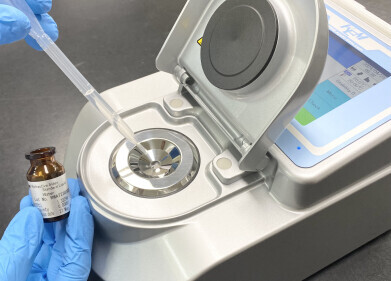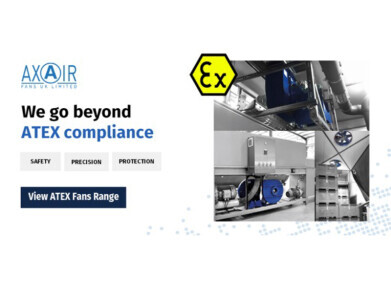-
 Kathleen Orland.
Kathleen Orland.
Laboratory Products
Interview with Kathleen Orland Senior Vice President and General Manager for Beckman Coulter’s Clinical Chemistry Immunoassay
Nov 18 2020
- What is the role of NICE?
The National Institute for Health and Care Excellence (NICE) provides national guidance and advice to improve health and social care. Their guidance takes many forms including care pathways and diagnostic guidance. Diagnostic guidance makes evidence-based recommendations on new diagnostic technologies for adoption in the NHS.
- What does the latest guidance on high-sensitivity troponin tests for the early rule out of non-ST-segment elevation myocardial infarction (NSTEMI) say?
An updated assessment was published in August 2020 to ensure that guidance is based on current evidence and includes new high-sensitivity tests developed since the last publication. In addition, it provides detail on how to use high-sensitivity troponin assay and references published algorithms.
The guidance recommends the use of high-sensitive troponin assays, such as Beckman Coulter’s Access hsTnI, for the early rule out of NSTEMI in people presenting to an emergency department with chest pain and suspected acute coronary syndrome.
Recommended testing strategies to rapidly rule out myocardial infarction within 1 or 2 hours are described as clinically effective and cost effective.
- What is troponin?
Troponins are proteins in muscle fibres that help to regulate muscle contraction. When there is damage to heart muscle, cardiac troponin (cTn) is released into the blood.
Troponin blood tests are used, together with an electrocardiogram (ECG), in people with persistent chest pain taken to hospital as an emergency to see if they have had a heart attack. The more extensive the damage, the greater the release and the higher the troponin blood concentrations become.
High-sensitivity troponin tests can detect this highly specific marker of heart damage at very low levels, which means that even minor heart damage can be picked up much earlier than the previously used contemporary troponin tests.
High-sensitivity troponin tests can help to quickly rule out a type of heart attack called an NSTEMI. Doing these tests can indicate people with normal troponin levels do not need to be admitted to hospital and those with a confirmed NSTEMI can get earlier treatment.
- How can hsTnI help the patient and the hospital?
Chest pain and suspected myocardial infarction were the cause of about 5% of all emergency hospital admissions in 2017 to 2018, as referenced in the NICE Diagnostic Guidance for High-sensitivity troponin tests for the early rule out of NSTEMI (DG40).
Typically, myocardial infarction will have occurred in only about 20% of these A&E admissions. Combining a high-sensitive troponin assay with a rapid rule out protocol quickly indicates if a person is having a myocardial infarction or not. This leads to fewer people being admitted to hospital, earlier discharge and reduced anxiety for the patient, while also allowing hospitals to deliver safe, high quality emergency care those with a confirmed NSTEMI.
- NICE guidance references European Society of Cardiology (ESC) guidance, this has also been updated.
During the August virtual European Society of Cardiology Congress, the 2020 ESC guidance was released. These new guidelines also highlight important and new recommendations. High-sensitivity cardiac troponin tests with a validated 0/1 hour and 0/2 hour algorithms are now cited as Class I recommendation for diagnosis using rapid ‘rule-in’ and ‘rule-out’ algorithms.
Beckman Coulter’s Access hsTnI is listed with assay specific cut offs for both 0/1h and 0/2h algorithms, delivering reliable results that clinicians can use with confidence to make decisions about patient management.
- Can you tell us more about the Access hsTnI assay?
Access hsTnI provides the high sensitivity performance needed to detect at-risk patients earlier and discharge non-acute patients faster. The Access hsTnI assay meets all the requirements defined by international guidelines and delivers optimal precision as well as the clinical sensitivity and clinical specificity necessary to assist clinicians with the diagnosis of myocardial infarction (MI).
More information online
Digital Edition
Lab Asia 31.2 April 2024
April 2024
In This Edition Chromatography Articles - Approaches to troubleshooting an SPE method for the analysis of oligonucleotides (pt i) - High-precision liquid flow processes demand full fluidic c...
View all digital editions
Events
Apr 28 2024 Montreal, Quebec, Canada
May 05 2024 Seville, Spain
InformEx Zone at CPhl North America
May 07 2024 Pennsylvania, PA, USA
May 14 2024 Oklahoma City, OK, USA
May 15 2024 Birmingham, UK

















